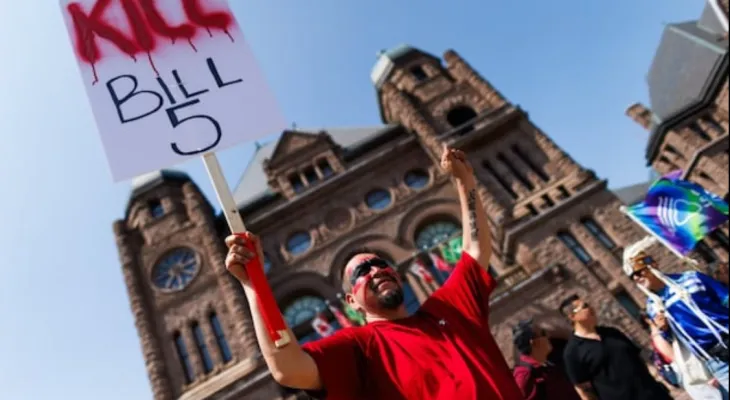Search here
Newspaper
Search here

Arab Canada News
News

Published: June 8, 2025
The Ontario Parliament, led by Premier Doug Ford's government, approved the controversial Bill 5, which places restrictions on the powers of mayors in certain cities and grants the central government expanded powers to appoint local administrations, sparking a wave of criticism regarding the reduction of democratic debate and the marginalization of the opposition's role.
The Ford government resorted to the mechanism of time allocation to expedite the passage of the bill, a procedure rarely used for local and representative issues. This sparked anger among opposition parties and civil society activists, who considered the move a violation of established democratic practices.
Background and Details of the Bill
According to the government, Bill 5 aims to enhance efficiency and streamline the decision-making process at the municipal level, especially regarding housing and economic development issues. The proposed law grants additional executive powers to mayors in certain major cities, with the potential for its application to be expanded in the future.
However, the opposition believes that the law enshrines centralization and weakens the role of elected municipal councils, as it opens the door to political appointments in local administrations without effective oversight, which contradicts the principle of local governance based on public representation and direct accountability.
Reactions from Parties and Stakeholders
Ontario Liberal Party leader Bonit Bangra stated, “Passing the law this quickly is a disregard for the opinions of voters and their elected representatives,” adding that “power does not mean overriding the rules of democratic dialogue.”
For its part, the New Democratic Party (NDP) expressed deep concern over “Ford's approach to governance,” warning that hastily passing laws without adequate dialogue threatens the structure of local democracy in the province.
In contrast, the Progressive Conservative government defended the bill, arguing that "the province needs swift and decisive decisions to address economic and housing challenges," emphasizing that "the measures were in accordance with the law and beneficial to the citizens."
Bill 5 represents a pivotal development in the nature of the relationship between the Ontario government and local governance, reopening the debate about the limits of executive power amid rapidly changing political and economic variables. As Canada experiences a broad discussion about the erosion of democratic space in some provinces, such steps will have long-term implications for citizens' trust in institutions.
Comments